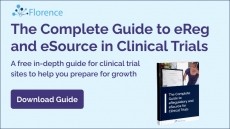Alzheimer’s Society responds to EU’s rejection of promising drug lecanemab

On Friday (July 26), the European Union’s drugs regulator, the Committee for Medicinal Products for Human Use (CHMP), advised that the drug lecanemab, a treatment for Alzheimer’s disease, should not be approved for use in the EU. The decision comes as a disappointment to many in the medical community, especially given the promising research behind the drug.
The UK’s largest dementia charity, Alzheimer’s Society, which funded research 30 years ago that identified the role of the amyloid plaques targeted by lecanemab in Alzheimer’s disease, responded to the news. Mark MacDonald, associate director of evidence, policy and influencing at Alzheimer’s Society, expressed the organisation’s disappointment regarding the decision.
MacDonald said: “We’re disappointed that lecanemab has not met the safety and effectiveness requirements to be licensed in Europe. While we fully respect the decision, we acknowledge it will be really difficult news for people in Europe who may have been eligible for this drug.” This sentiment echoes the broader concern within the Alzheimer’s community about the urgent need for effective treatments.
Awaiting UK decisions on Alzheimer’s treatments
In the UK, the Alzheimer’s Society is awaiting decisions from the Medicines and Healthcare products Regulatory Agency (MHRA) and the National Institute for Health and Care Excellence (NICE) on both lecanemab and another promising treatment, donanemab. These regulatory bodies are currently scrutinizing the evidence around these treatments to determine their suitability for use in the UK.
MacDonald highlighted the importance of these upcoming decisions, stating. He said: “Whatever the regulators decide, we remain at an important and exciting moment. There are currently 164 active clinical trials for Alzheimer’s disease, and we expect more treatments to be submitted for MHRA approval in the future. We are on the cusp of major scientific breakthroughs beginning to improve the outlook for those with the disease.”
Emphasizing the importance of diagnosis
As the medical community eagerly anticipates new treatments, the Alzheimer’s Society emphasises the critical need for improved diagnosis of dementia. Currently, a third of people in the UK with dementia do not have a diagnosis at all, which hinders timely and accurate treatment. This issue is particularly pressing as new treatments become available.
MacDonald added: “That makes it even more important that we improve diagnosis. A third of people in the UK with dementia don’t have a diagnosis at all, let alone one with the timeliness and accuracy required to unlock access to the new treatments on the horizon."
He further advocated for the establishment of new, ambitious dementia diagnosis rate targets, accompanied by funded plans to deliver early, accurate diagnosis at scale.
Moving forward with Alzheimer's research
Despite the setback with lecanemab, the Alzheimer’s Society remains optimistic about the future of Alzheimer’s treatment. The organization continues to support and fund research efforts aimed at understanding and combating this devastating disease. The society’s historical contributions to the field, including the early research on amyloid plaques, highlight its ongoing commitment to finding effective treatments.
The decision by the EU’s drugs regulator may have slowed progress temporarily, but the Alzheimer’s Society’s response indicates a steadfast dedication to advancing scientific research and improving patient outcomes. The ongoing trials and forthcoming regulatory decisions in the UK represent crucial steps toward a future where Alzheimer’s disease can be effectively managed and treated.



























